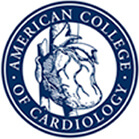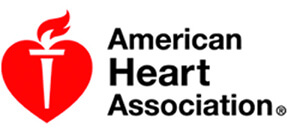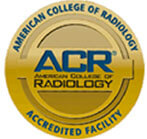COVID-19 and Heart Damage
- Posted on: Apr 8 2022
Does COVID-19 contribute to heart attacks and other types of heart damage?
If there is anything we have become certain about when it comes to the COVID-19 pandemic, it is that there is so much that we do not know. COVID-19 is the disease caused by the virus, SARS-CoV-2, which translates to “severe acute respiratory syndrome coronavirus 2”.
It was originally believed by most people that this virus mainly attacks the lungs, which made sense considering the “severe acute respiratory syndrome” part of the name. It also seemed obvious since so many of the symptoms were related to shortness of breath or trouble breathing. We soon learned, however, that the dangers of COVID-19 go well beyond just the respiratory system.
The speed with which vaccines for the virus have been developed has been unprecedented, but research about COVID-19 and its effects, both long and short term, is ongoing. Information coming out of the Centers for Disease Control (CDC) documenting the more commonly reported long-term symptoms includes:
- shortness of breath
- fatigue
- cough
- headache
- chest, joint, and muscle pain
- brain fog, meaning difficulty thinking and concentrating
- depression
- intermittent fever
- heart palpitations
While the above list of symptoms is nothing to take lightly, there are more serious long-term complications being attributed to this disease. According to the National Institutes of Health (NIH), “COVID-19 can affect virtually any organ in the body.”
In addition to the respiratory system, the other systems of the body that have been found to have long-term effects from COVID-19 include the following:
- Cardiovascular
- Renal, including acute kidney injury
- Integumentary, skin rash, hair loss
- Neurological, sleep issues, difficulty with thinking, concentrating and memory, as well as loss of sense of taste and smell
- Psychiatric, anxiety, depression, mood swings
The speed with which vaccines for the virus were developed has been unprecedented, but research about the virus and its effects, both long and short term, is ongoing. An area that is of particular concern is the lasting heart damage that may result from COVID-19.
We now know that most people who test positive for COVID-19 will have relatively mild symptoms and soon recover. Around 20% will end up with pneumonia, and a much smaller percentage will develop severe symptoms. In this last group, the body’s immune system can overreact and flood the bloodstream with inflammatory proteins called cytokines. This is often described as a “cytokine storm” and the long-term effect can be tissue death and organ damage, including the heart.
One concern is myocarditis, which is inflammation of the heart muscle. This can be brought on by the resulting inflammation caused by the cytokine storm or the virus itself may directly attack the heart. Myocarditis can weaken the heart or cause it to become enlarged, which affects blood pressure and leads to fluid building up in the lungs.
A serious danger to the heart comes from inflammation related to COVID-19 activating the body’s clotting mechanisms and damaging the lining of the blood vessels. This produces blot clots that can end up in a major artery and result in a heart attack.
COVID-19 pretty much stopped the world in its tracks, and it’s going to be some time before we can settle into whatever normal is ahead. The medical community is working around the clock to not only try and help those who have been hit by the virus but also do research to understand the long-term effects and how to manage them.
At this point, we really don’t know exactly what kind of long-term effects COVID-19 will have on the heart. This makes it even more important that you pay attention to any worrisome symptoms, and, if they continue or get worse, contact your doctor as soon as possible. Some of the symptoms to especially watch for include:
- chest pain
- heart palpitations
- shortness of breath
- swollen ankles
At Cardiovascular Wellness, our mission is to provide outstanding, timely, and personalized care to all of our patients. We are committed to improving your quality of life by designing a comprehensive plan of heart care, individualized to your needs.
Information on locations and office hours for Cardiovascular Wellness can be found by clicking here.
Posted in: Heart Disease






